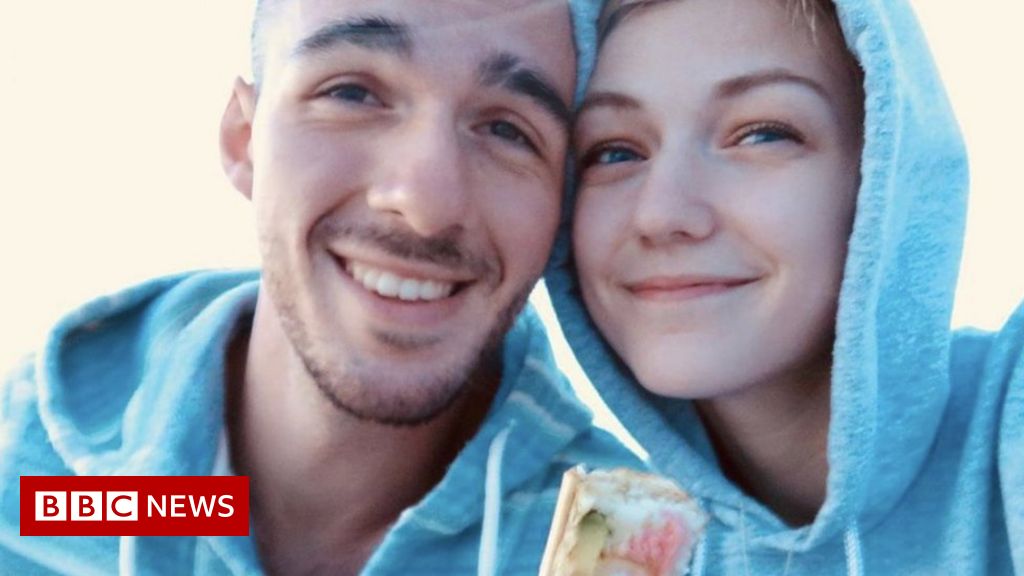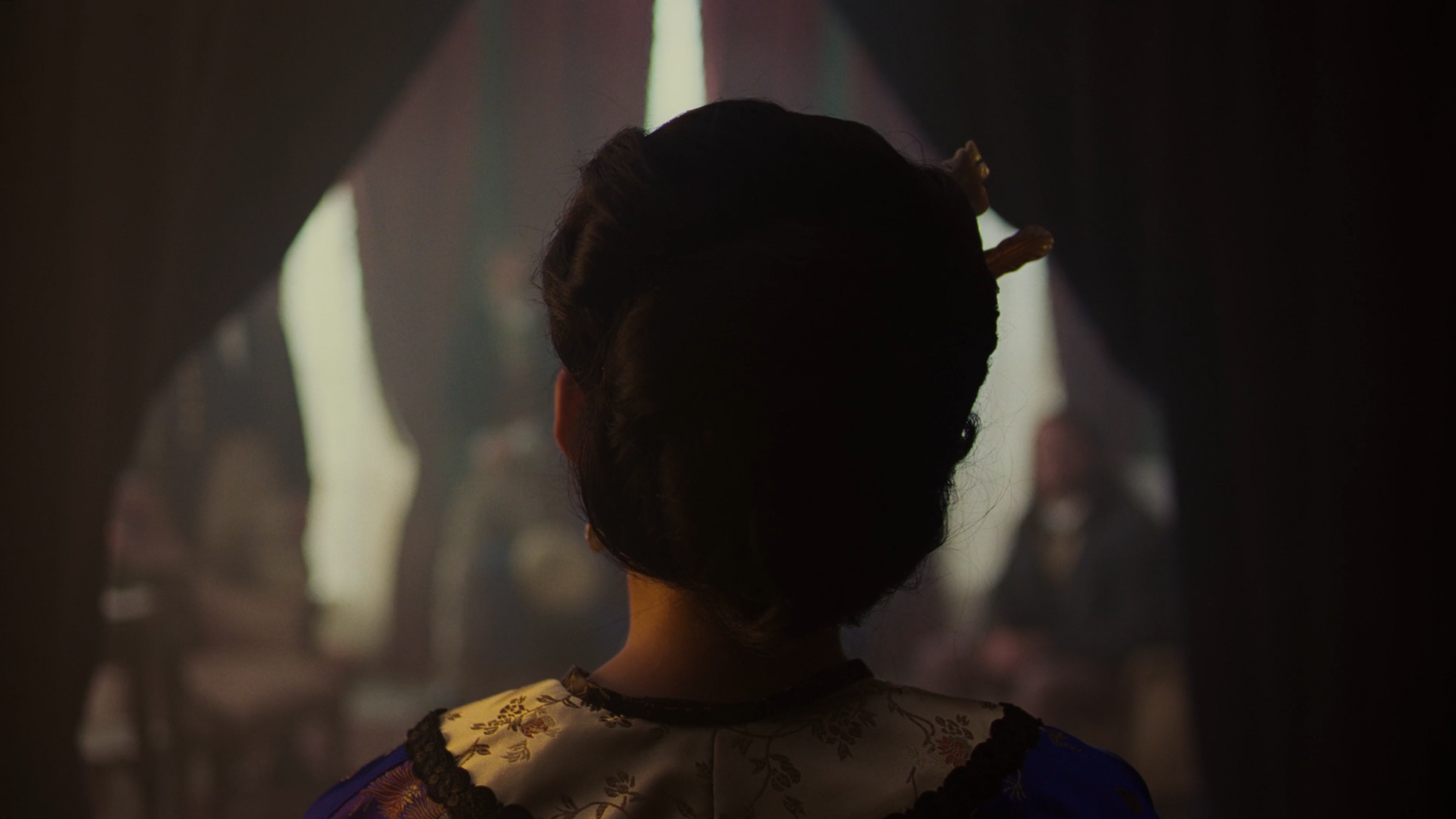Abuse turns your world into a kind of sadistic haunted house setting—frightening but also extremely disorienting
A police officer’s body cam captured a young woman standing on the side of the road, sad and sheepish, the sun in her eyes. Her relationship was on the rocks, but she was earnestly telling the officer that she wanted things to work out, she wanted them to be OK. It looked like an unfortunate incident, a stumble on the way to a great adventure, that would soon be behind her. A few weeks later, however, the pretty woman in the footage would be dead.
The tragedy of 22-year-old Gabby Petito seemed, at first glance, to be entirely preventable. Before she disappeared while on a cross country trip with her fiancé, Brian Laundrie, witnesses saw him slap Petito. This is how the police became involved.
Petito was an ambitious young woman, originally from New York State, who dreamed about being a travel influencer. To that end, she set out on a cross-country trip alongside her fiancé, documenting their journey along the way. Not all seemed well in their relationship, however, and her family grew suspicious when Petito stopped communicating with them. When Laundrie returned to his home in Florida without Petito, but still in possession of her travel van, it became clear that something horrible had happened.
Petito’s body was found in Wyoming a few weeks after Laundrie returned. Police have ruled her death a homicide; as of this writing, her fiancé remains missing. It is unclear whether he has harmed himself or is simply on the run from the authorities.
The footage of the police encounter that took place in Moab, Utah, weeks before Petito went missing, gives us plenty of clues as to what may have transpired between the young woman and her fiancé. It is a tragically familiar sight to anyone with experience in domestic violence, but it is even more heartbreaking in hindsight:
Laundrie is calm and pleasant when speaking with the officers. Petito looks like she is emotionally unstable, but she is clearly heartbroken and dying of shame—the typical response of a woman who is used to being belittled and told that everything that happens to her is her fault.
The police are courteous, polite, and clearly sympathetic, but they don’t see the need to put anyone in handcuffs. No one is giving them an explicit reason to do so. The police are focusing on de-escalating the situation, and appear to be succeeding. They believe that what is happening before them is a mental health crisis first and foremost—especially because Petito, at one point, admits to slapping Laundrie—and their actions are consistent with that.
In light of what ultimately happened to Petito, the internet cried foul over the police encounter. If only the cops had taken the situation more seriously, the wisdom went, Petito would still be alive.
It’s a noble and understandable sentiment, but as someone who surveyed her own hellish, seven-year-long abusive relationship, I am not sure if it is the correct one.
Human beings have always loved our stories of good and evil to be uncomplicated, and by increasing both the speed and frequency of communication, social media has in particular amplified demand for the simplest of narratives. In the case of tragic stories like Petito’s, it feels only natural to say that what happened to her could have easily been prevented. This narrative is bolstered by the fact that Petito was young, attractive, and white — which is why her case immediately received national attention.
“Missing white woman syndrome” is very much a real phenomenon, particularly when the white woman happens to be young, attractive, and from the sort of background that, while not necessarily wealthy, can be described as “good” or “upstanding.” Some have wondered whether the incident with the police would have gone down differently if Petito and/or her fiancé had been, for example, Black.
Would both of them have been criminalized? Would there have been a chance of the officers being more harsh on the fiancé, hence preventing a murder? The history of policing with regard to domestic violence tells us that a tougher response by officers would not have necessarily saved anyone.
In general, policing alone does not appear to be sufficient to solve the problem of domestic violence, and frequently, much depends on luck. The idea that domestic violence outcomes can sometimes depend on blind luck alone is, of course, completely detestable to us. Why should Petito — or any woman, or any abuse victim — have to depend on luck? Why couldn’t her horrifying trajectory have just been stopped?
When reviewing the body cam footage, I was struck by the fact that at one point, Petito told a police officer that her boyfriend didn’t really believe she could pull off her dream of building a website and becoming a well-known travel influencer. “He doesn’t really believe I can do any of it,” she says at one point, looking both desperate and desperate to please, an expression I have caught on my own face in videos and pictures that documented my highly volatile past.
Two things stuck out: Petito was far away from home, and essentially under Laundrie’s full control. Yet she was also embarking on an ambitious project, which must have made Laundrie feel as though his control was slipping.
The night my husband almost killed me, I too was far away from home, on vacation on the island of Crete, one of my favorite places on earth. That day, I had submitted a new play to a festival, a piece of work my director husband had praised highly. Yet the mere fact that I had written and submitted it resulted in dark feelings of jealousy and resentment in my husband, who felt that I was growing too successful, too fast.
A few drinks into a moonlit summer night, he grew more and more furious with me, until he could no longer contain his anger and he attacked me physically. The hotel owner called the police, an act that almost certainly saved my life that night.
When the police interviewed me, they could see the bruises already blooming on my body and had eyewitness accounts to go on. But, much like Petito, I was too mortified to press charges. The fact that my then husband had bruises himself — from when I had, very unsuccessfully, tried to defend myself, much as Petito had apparently done — made the situation murkier. In the light of day, my guilt overwhelmed me, and I was ready to believe that I had provoked the entire incident, in spite of people who were ready to testify on my behalf.
That’s the funny thing about abuse—it turns your world into a kind of sadistic haunted house setting, frightening but also extremely disorienting. Up is down and down is up. You are so demoralized and humiliated, that you stop seeing yourself as a full person deserving of the most basic of rights. The Greek police urged me to press charges, but they couldn’t force me to. In the Petito case, the Utah police had even less to go on.
My friend Joy Ziegeweid has spent nearly a decade working with domestic violence victims and is currently the supervising immigration attorney at the Urban Justice Center’s Domestic Violence Project. Haunted by the body cam footage of Petito, I called her for an opinion on the case.
Joy reminded me that police involvement “does not always guarantee a good outcome” in a domestic violence situation. Again, we often like to think that it does, but even the most fair-minded officer can only respond in cases when the abuser takes specific actions. If a chillingly manipulative man like Laundrie is not physically attacking a woman in front of the police, and the woman herself does not say that she is in danger, there isn’t much law enforcement officers can do.
Of course, as Joy reminded me, there are some jurisdictions in which a victim does not need to press charges in order for the cops to move to make an arrest. “But that can have its own downsides,” Joy explained. A victim residing in such a jurisdiction may be less likely to seek help in the first place — because victims are gradually taught to place the abuser’s needs ahead of their own, they may not want to see them arrested at all.
According to available data, one in four women and one in nine men experience what is termed to be severe abuse—including physical violence, sexual violence, and/or stalking—in the United States. There has been widespread evidence that the Covid-19 pandemic has greatly exacerbated the problem. For most of us, domestic violence is a problem hidden from view, only spilling out into the public sphere when it is already too late, which is what appears to have happened in the Petito case.
Because of the nuanced and complex nature of domestic violence, solutions not involving law enforcement can be helpful, especially when the victim is not yet able to fully articulate or even realize the problem, which is a phenomenon I have experienced myself. Again, much depends on jurisdiction.
As Joy reminded me, in New York State one can obtain a protective order through family court without involving the police. “But the police can then be called to enforce it,” she said. Availability of beds in women’s shelters and other resources for victims struggling to break free is another important part of the equation, according to Joy.
Simply put, in many cases, a battered spouse or partner has nowhere to go. A battered spouse or partner is also under intense psychological stress. Both economic and psychological factors are cited as very important in determining good outcomes for domestic abuse situations. Without financial support and very specific, targeted counseling, victims frequently cannot be saved by cops alone, no matter how heroic or well-trained.
Hybrid solutions are required to tackle the problem of domestic violence because the problem itself is hybrid, with a victim’s reality constantly shifting. In the first months after I was able to leave my husband—only with the help of friends and family, I could never have done it on my own—I struggled with feelings of guilt, wanting to go back, and wondering if I had made a terrible mistake.
Only by slowly learning how to experience life without constant control—the same control plainly visible to me as I watched the Petito footage years later—did I begin to understand what I had been missing for all of those years: a full life as an adult woman, with her boundaries intact, and her physical safety no longer dependent on someone else’s moods.
The fact that I escaped is extremely lucky. Many things could have gone wrong for me, and simply didn’t. Sometimes, there are no clear cut answers to the question as to why one victim makes it and another one doesn’t, and decisions that seem right in the moment don’t necessarily withstand the test of time.
When I refused to press charges against my husband, all of those years ago, I thought I was doing the right thing. Sometimes, the true nature of a crime emerges only in hindsight. At the same time, I don’t know how criminal charges would have affected my situation. What if my husband had been released pending trial and been sufficiently enraged to kill me? What if financial and psychological resources hadn’t been available to me at the time, forcing me into an even worse situation with a man who had one more reason to hate and to dispose of me?
While I believe that it is only natural to say that a murder was preventable, the truth is, what happened to Petito, and what is happening to countless other victims, many of them ignored by the press, requires the build up of a decent preventative infrastructure. Otherwise, we are only offering platitudes.



